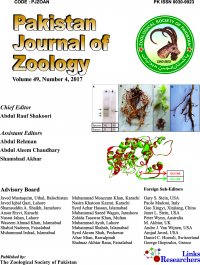Evidence for Non-Toxicity of Aqueous Leaf Extract of Chrysophyllum albidum, a Commonly Used Nigerian Folk Medicine
Evidence for Non-Toxicity of Aqueous Leaf Extract of Chrysophyllum albidum, a Commonly Used Nigerian Folk Medicine
Kingsley O. Omeje1, Juliet N. Ozioko2, Amaechi L. Ogara2, Benjamin O. Ezema2* and Dilibe C. Urama3
ABSTRACT
Chrysophyllum albidum is an important herb, used in treating or management of many diseases. Glycosides, flavonoids, saponnins, alkaloids and tannins were detected in the extract with flavonoids (3.62 mg/QEq), glycosides (0.194 mg/100g), tannins (8.508mg/TAEq) and alkaloids (6.43%) were quantified. There was no sign of mortality or toxicity after the acute and chronic toxicity tests after 24 hr. Some hematological indices (red blood, white blood cells, packed cell volume, lymphocytes, neutrophil, mean cell volume) increased after the 28-day treatment regime. There was increase in the plasma concentration of high-density lipoprotein and triacylglycerides, with a decrease in the plasma concentration of low-density lipoprotein, with non-significant increase (p>0.05) in the activities of antioxidant enzymes. The extract did not show alteration in the liver function. Hence, prolonged consumption of the extract has not shown any sign of toxicity and may not predispose the animal to cardiovascular diseases.
To share on other social networks, click on any share button. What are these?










